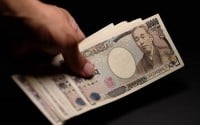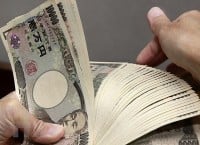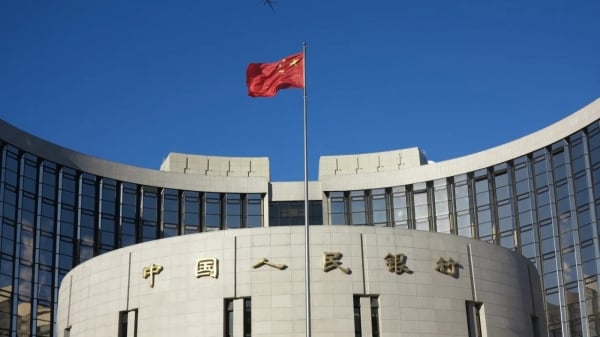 |
| Japan's economy is gradually emerging from recession thanks to a strong recovery in domestic demand after Covid-19. (Source: Reuters) |
However, signs of slowing growth in major economies such as the US, Europe and China are increasingly clouding the outlook for the export-dependent economy and raising concerns that the Bank of Japan (BoJ) may remove its massive stimulus program for the economy.
“Consumption will continue to underpin growth as the easing of Covid-19 restrictions boosts spending on tourism and services, but the economic recovery will be moderate as weak overseas demand weighs on exports. Amid strong domestic demand, exports will slow,” said Yoshiki Shinke, chief economist at Dai-ichi Life Research Institute.
Japanese government data on May 17 showed the world's third-largest economy grew 1.6% year-on-year in the January-March period, far exceeding the market's previous forecast of 0.7%, marking the first increase in three quarters.
Private consumption, which accounts for more than half of the economy, rose 0.6% in the first quarter of 2023 from the previous quarter as the country reopened after the pandemic, helping boost services spending.
Japan's gross domestic product (GDP) hit a record 570.1 trillion yen ($4.22 trillion), partly due to rising prices, Economy Minister Shigeyuki Goto said.
However, Mr. Goto commented that caution is necessary in the context of emerging challenges and risks: "We must pay close attention to the global economy, the impact from financial markets and interest rate increases on the real economy."
Strong domestic demand offset a decline in exports, which fell 4.2% in January and continued through March, marking the first decline in six quarters.
"Global demand for commodities has been weak, so exports are weak. Industrial production is also weak, so we can't expect manufacturers to do well in the near term," said Toru Suehiro, an economist at Daiwa Securities.
Rising fuel and food costs, which have pushed Japan's consumer inflation above the BoJ's 2 percent target, could weigh on consumption unless wage increases are sustained, analysts said.
 | Yen depreciates, Bank of Japan still determined to maintain super-loose monetary policy On October 28, the Bank of Japan (BoJ) decided to maintain its ultra-loose monetary policy due to concerns about the recovery momentum... |
 | Why Tourists Are Searching More About Japan The number of foreign visitors to Japan increased to nearly 500,000 in October, the first month the country reopened ... |
 | Japan: Highest inflation in four decades, how will BoJ handle it? Reasons for record high budget Japan's next fiscal budget, starting in April 2023, could reach ... |
 | The Falling Yen Is Not Just a Sad Sign for Japan On January 12, Japan's Ministry of Finance announced that the country achieved a current account surplus of 1,800 billion Yen (14 billion USD) in ... |
 | Japan strives to 'revive' tourism industry after Covid-19 Japan's plan to end coronavirus-related border controls early next month is boosting ... |
Source










![[Photo] Prime Minister Pham Minh Chinh chairs Government Conference with localities on economic growth](https://vstatic.vietnam.vn/vietnam/resource/IMAGE/2025/2/21/f34583484f2643a2a2b72168a0d64baa)

































Comment (0)